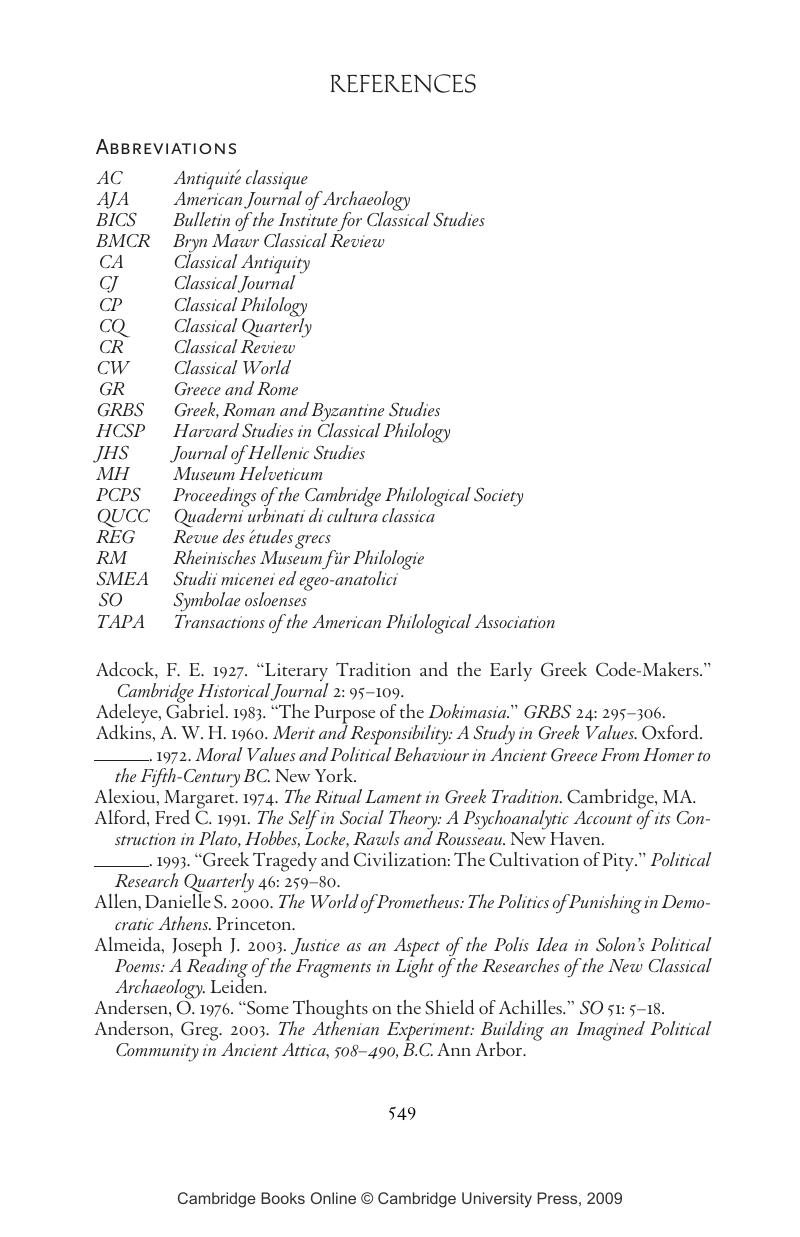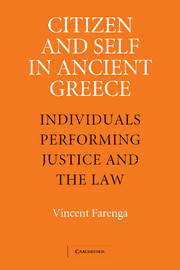Book contents
- Frontmatter
- Contents
- Acknowledgments
- Introduction
- 1 Justice to the Dead: Prototypes of the Citizen and Self in Early Greece
- 2 Performing Justice in Early Greece: Dispute Settlement in the Iliad
- 3 Self-Transformation and the Therapy of Justice in the Odyssey
- 4 Performing the Law: The Lawgiver, Statute Law, and the Jury Trial
- 5 Citizenship by Degrees: Ephebes and Demagogues in Democratic Athens, 465–460
- 6 The Naturalization of Citizen and Self in Democratic Athens, 450–411
- 7 Democracy's Narcissistic Citizens: Alcibiades and Socrates
- Conclusion
- References
- Index
- References
References
Published online by Cambridge University Press: 23 July 2009
- Frontmatter
- Contents
- Acknowledgments
- Introduction
- 1 Justice to the Dead: Prototypes of the Citizen and Self in Early Greece
- 2 Performing Justice in Early Greece: Dispute Settlement in the Iliad
- 3 Self-Transformation and the Therapy of Justice in the Odyssey
- 4 Performing the Law: The Lawgiver, Statute Law, and the Jury Trial
- 5 Citizenship by Degrees: Ephebes and Demagogues in Democratic Athens, 465–460
- 6 The Naturalization of Citizen and Self in Democratic Athens, 450–411
- 7 Democracy's Narcissistic Citizens: Alcibiades and Socrates
- Conclusion
- References
- Index
- References
Summary

- Type
- Chapter
- Information
- Citizen and Self in Ancient GreeceIndividuals Performing Justice and the Law, pp. 549 - 576Publisher: Cambridge University PressPrint publication year: 2006



